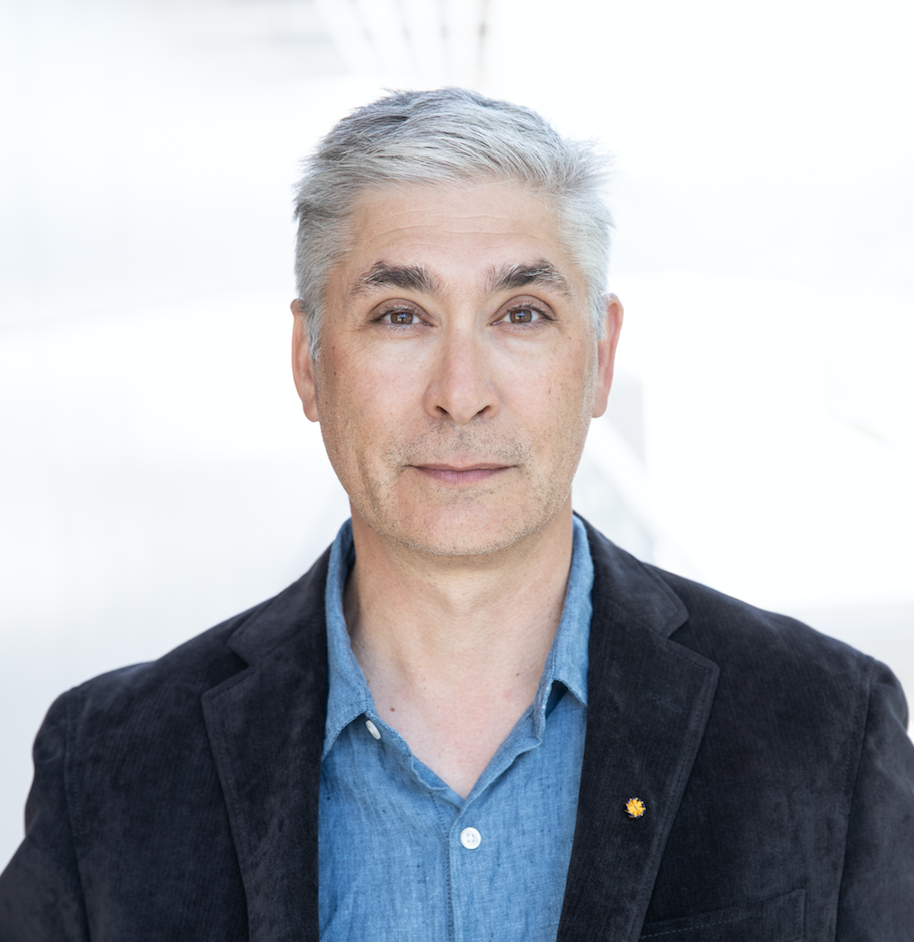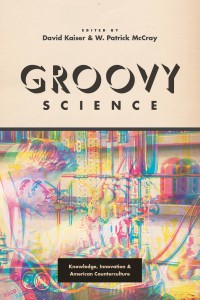I am a professor in the History Department at the University of California, Santa Barbara where I research, write, and teach about the histories of technology and science.
My personal (non-UCSB) web page is here…
I am not currently accepting new graduate students.
I will be on leave in 2025-2026 as the Kluge Chair in Technology and Society at the Library of Congress.
- Science, technology, and the environment after 1945 (primarily US)
- The intersections of art, technology, and science
- Histories of computing
Recent & Current Things: I am finishing a new book – titled README: A Bookish History of Computing from Electronic Brains to Everywhere Machines – for The MIT Press (forthcoming late 2025). In it, I take a selection of about a dozen books (some famous, others not) about computers and computing and use them to tell a larger story about the history of information technologies since 1945. At its heart is the question: how did computers become popular, popularized, and pervasive? README is, in other words, a book about books about computing.
In 2020, my book titled Making Art Work (The MIT Press, 2020) was published. It looked at art-technology collaborations during the 1960s-90s with the focus being the activities and experiences of the engineers and scientists who paired up with artists. I was involved with several projects associated with the Getty Research Institute’s new Pacific Standard Time initiative (2019-2024) which focused on art, technology, and science. I am also an advisor to CIFAR’s Future Flourishing program, something which speaks to my on-going interest in “histories of the future.”
Future Things: I have two new projects underway. One of them, with funding from the Canadian Institute for Advanced Research, explores how space exploration, astronomy, and the environment intersected and coalesced in the 20th century around the rubric of “habitability.” I am especially interested in this topic as it makes connections between extreme life, natural and built environments, and exoplanets. I also have a new effort underway which looks at the idea of “mountain cultures” as they relate to outdoor recreation and natural history in the western United States. Linked to this is an examination of outdoor recreation, 1850-1950, as seen through the lens of natural history, technology, and the environment.
Books:
- README: A Bookish History of Computing from Electronic Brains to Everything Machines (The MIT Press; late 2025)
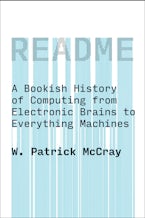
- Greedy Science: Creating Knowledge, Making Money, and Being Famous in the 1980s (Johns Hopkins University Press, 2025). This collection, co-edited with my colleague Michael D. Gordin, looks at the intersection of money and science in the 1980s.

-
Making Art Work: How Cold War Engineers and Artists Forged a New Creative Culture (The MIT Press, 2020). It explores collaborations between engineers and artists from the 1960s onward. It shows how the categories of art and technology (and artist vs. engineer) have blurred, changed, and transformed over the past half-century. Some reviews of Making Art Work are here, here, and here.
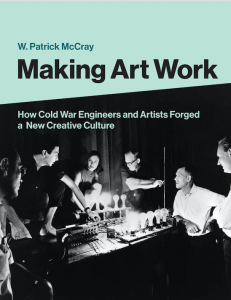
- Groovy Science: Science, Technology, and American Counterculture (Chicago, 2016). Co-edited with David Kaiser, this collection of essays challenges the idea that the counterculture was anti-science. Some reviews, etc. are here, here, and here. Our local NPR station also did a story on it.
- The Visioneers: How a Group of Elite Scientists Pursued Space Colonies, Nanotechnologies, and a Limitless Future (Princeton, 2013). Winner of 2014 Watson Davis and Helen Miles Davis Prize (History of Science Society) and the 2012 Eugene E. Emme Award for Astronautical Literature (American Astronautical Society).
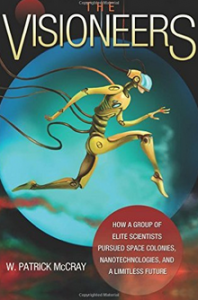
- Keep Watching the Skies! The Story of Operation Moonwatch and the Dawn of the Space Age (Princeton University Press, 2008). My third book tells how citizen scientists helped track the world’s first satellites.
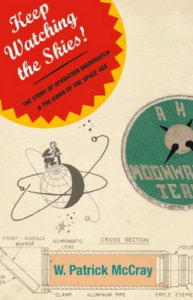
- Giant Telescopes: Astronomical Ambitions and the Promise of Technology, (Harvard University Press, 2004). This book was super-fun to research; I got to spend nights at major observatories in the U.S. and overseas.
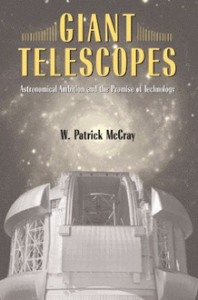
- Glassmaking in Renaissance Venice: The Fragile Craft, (Ashgate Press, 1999). My first book presented the history of Venetian glassmaking from a consumer’s point of view and drew upon a rich array of material culture.
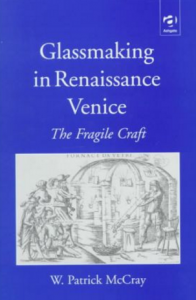
Selected Articles:
- “HSS, the FBI, and the Unabomber,” Isis 115, no. 3 (2024)
- “Art Out of Order: Jack Burnham, the 1970 ‘Software’ Exhibit, and the Aesthetics of Information Systems,” Technology and Culture 63, no. 3 (2022)
- “When Artists, Engineers, and Pepsi Collaborated, Then Clashed at the 1970 World’s Fair,” IEEE Spectrum, March 2020.
- “Fallout and Spinoff: Commercializing the Art-Technology Nexus,” in Hybrid Practices: Art in Collaboration with Science and Technology in the Long 1960s, David Cateforis, et al., eds. (Berkeley: University of California Press, 2018), 61-78; this essay describes some of the intellectual property that engineer-artist collaborations produced.
- “The Biggest Data of All: Making and Sharing a Digital Universe,” in Data Histories, volume 32 of Osiris (2017): 243-263; continues story of astronomers’ interaction with Big Data.
- “Gravity and Geese,” Leonardo, 2017. Looks at German artist Agnes Meyer-Brandis & her connections to a 17th century science fiction story.
- “How Astronomers Digitized the Sky,” Technology and Culture 55, 4 (2014): 908-944. The title says it all…
- “’Globalization with Hardware’”: ITER’s Fusion of Technology, Policy, and Politics,” History and Technology, 26, 4 (2010): 281-310. Fusion scientists in Europe created a transnational research community as they planned their “next big machine.”
- “From Lab to iPod: A Story of Discovery and Commercialization in the Post-Cold War Era,” Technology and Culture, 50, 1 (2009): 58-81. How did a physics discovery made in 1988 end up in your iPod?
- “Amateur Scientists, the International Geophysical Year, and the Ambitions of Fred Whipple.” Isis 97, 4 (2006): 634-658.
Tells of the hurdles astronomer Fred Whipple overcame to persuade his colleagues that amateurs could contribute to the IGY. - “Will Small Be Beautiful? Making Policies for Our Nanotech Future.” History and Technology 21, 2 (2005): 177-203.
This essay lays out the basic path for how the U.S. government decided to spend billions on nanotech research. - A full list of my publications and other research activities can be found on my c.v.
My research informs my teaching. I offer a variety of undergraduate and graduate courses including:
- Science and the Modern World (History 20)
- Technology and the Modern World (History 22)
- The Atomic Age (History 105A)
- Histories of Information and Computing (106C)
- Machines, People, and Politics: Histories of Modern Technologies (History 109T)
In addition, I teach some more specialized small-enrollment undergraduate courses as well as graduate readings and research seminars.
- Kluge Chair in Technology and Society at the Library of Congress (2025-2026)
- CIFAR Catalyst Grant, “The Habitability Project,” 2025-2027.
- I co-edit (with Kate McDonald and Asif Siddiqi) the series “Studies in the History of Technology” and (with Suman Seth) the series “Introductory Studies in the History of Science”, both for Johns Hopkins University Press.
- Distinguished Fellow, 2018-2019, Lemelson Center for Invention and Innovation, National Museum of American History, Smithsonian Institution.
- Co-PI on grant from Canadian Institute for Advanced Research for 2018 workshop on the “4th Industrial Revolution.”
- World Economic Forum, Invited Speaker, 2016 & 2017.
- Lindbergh Chair, 2015-16, National Air and Space Museum, Smithsonian Institution.
- 2014 Watson Davis and Helen Miles Davis Prize, History of Science Society for The Visioneers as best book that “promotes public understanding of the history of science.”
- Elected Fellow of the American Association for the Advancement of Science (2011).
- Elected Fellow of the American Physical Society (2013).
- Eleanor Searle Visiting Professor, History of Science, California Institute of Technology, 2011-12.
- Collaborative Research Fellowship (2010-2011) from the American Council of Learned Societies.
- Senior Research Fellow, Institut Méditerranéen de Recherches Avancées; 2010.
- Co-Principal Investigator for UCSB’s Center for Nanotechnology in Society. The CNS was a ten year, multi-million dollar initiative (2006-2016) funded by the National Science Foundation that supported interdisciplinary research on emerging technologies. My working group’s final report is here.
- I am currently on the editorial boards of The University of California Press and Technology and Culture
In the News
- In March 2022, I discussed my book Making Art Work on the podcast Peoples and Things.
- A new documentary about Stewart Brand appeared in 2021. I reviewed it for Science.
- 2020 showed us how we would all have to master the art of survival. This essay for Aeon explored how artists Helen and Newton Harrison made survival pieces in the 1970s.
- In 2019, historians noted the 50th anniversary of the Apollo moon landing and the Woodstock festival. Dave Kaiser and I wrote an essay for Science about the era’s turn toward “groovy science.”
- 2019 also marked the 60th anniversary of C.P. Snow’s classic The Two Cultures. I wrote a short essay about it for Science.
- Occasionally, I write for the Los Angeles Review of Books. Some essays include:
- A 2024 essay about Silicon Valley’s environmental inequalities
- A 2022 essay about computer chips and geopolitics
- A 2022 essay about John Markoff’s biography of Stewart Brand
- From 2021, a essay about the supposed demise of the independent inventor
- From 2021, looking for and finding the hidden people who make Silicon Valley work.
- A 2020 essay on the ill-fated “One Laptop Per Child Program”
- Thoughts on a recent history of Silicon Valley
- An essay/review from 2018 on science’s “freedom fighters”
- A critique of Silicon Valley’s obsession with immortality.
- Buckminster Fuller: Cold War design maven or huckster?
- I wrote an essay in 2016 about the “cult of innovation” & the need to re-think our histories of technology for Aeon which got some airtime.
- In 2016-2018, the World Economic Forum invited me to Davos, Switzerland and Tianjin, China to talk about science, technology, and innovation. Some coverage of this is here, here, and here.
- The podcast series 99% Invisible used some of my Visioneers book as the basis for a June 2016 episode.
- Some other things written for non-academic venues:
- A 2016 piece for Slate about the history of nanotechnology.
- A piece for The Chronicle of Higher Ed on “tech intellectuals”.
- Science Friday invited me to do some live radio in 2015 and 2016; links are here and here.

